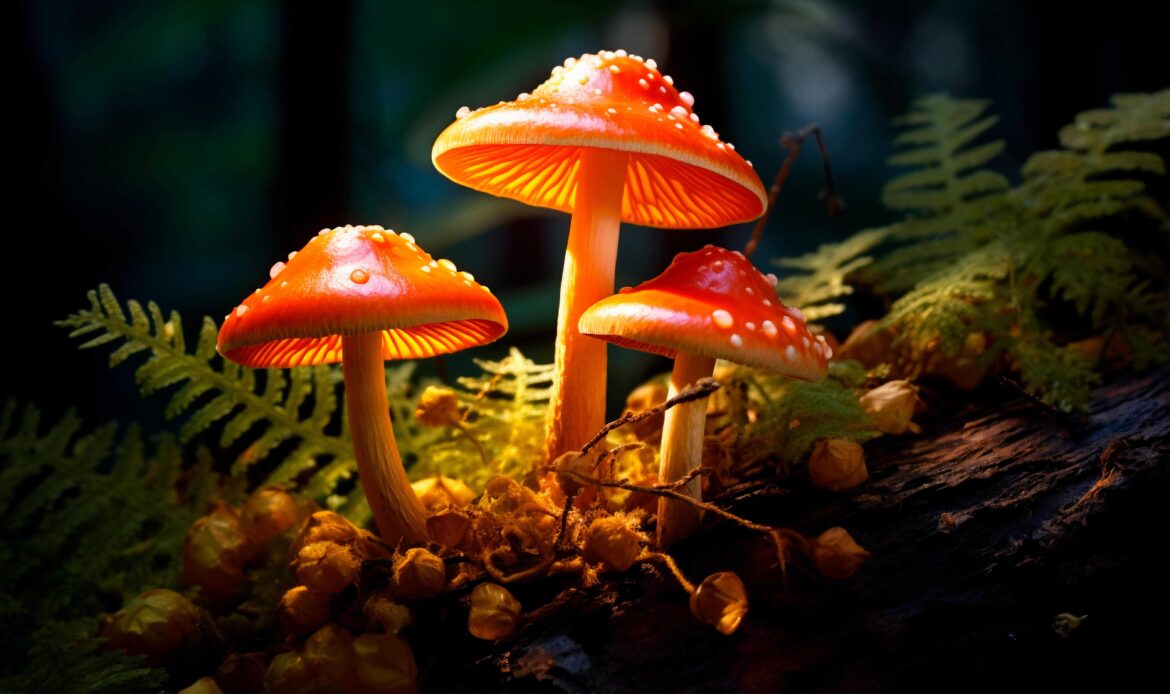Getting caught with magic mushrooms can change your life in ways most people don’t even imagine. Magic mushrooms contain a psychedelic substance called psilocybin, and even though some people use them for spiritual reasons or mental health benefits, they’re still illegal in most places across the country.
Under federal law, psilocybin is considered a Schedule I drug. That’s the same category as heroin, meaning the government sees it as a drug with no medical use and a high chance of abuse. Every state treats the issue a little differently, but the consequences are rarely light.
So, if you’re facing an accusation related to magic mushrooms, it’s important to understand exactly what you’re up against. The truth is, the charge for possession of mushrooms is often classified as a felony, especially depending on the quantity found, how it was stored, and what law enforcement believes your intent was, whether personal use or distribution.
What Are Magic Mushrooms, Really?
Magic mushrooms aren’t some mysterious new drug. They’ve been used for centuries, especially by Indigenous cultures in Central and South America, often in ceremonies or healing rituals. Scientifically, what makes them “magic” is a chemical called psilocybin.
Once you ingest psilocybin, your body converts it into another compound called psilocin, which interacts with serotonin receptors in your brain and causes hallucinations, mood shifts, distorted thinking, and an altered sense of time.
People take magic mushrooms for different reasons. Some do it recreationally, chasing a euphoric trip. Others explore them for mental health reasons, especially as research grows on their potential to treat depression, PTSD, and anxiety.
But regardless of your reason, if you’re caught with them, or even just accused of taking them, you might still end up in court.
Federal Drug Laws Regarding Magic Mushrooms
You may not know this, but even if you live in a state where mushrooms are decriminalized or legal, in some settings, federal law still applies. That means the U.S. government can technically prosecute you under federal charges, even if local police decide not to arrest you.
Under federal law, just having a small amount of psilocybin mushrooms is a criminal offense. First-time possession can lead to up to one year in prison and a minimum fine of $1,000. If you get caught again, you’re looking at up to two years and a minimum $2,500 fine. Your third offense can bag you a three-year jail sentence alongside a $5,000 fine, at a minimum.
Furthermore, if you’re growing magic mushrooms, even just a few for yourself, the law might consider that drug manufacturing. That can lead to up to 20 years in federal prison and fines as high as $1 million.
If you’ve had past drug charges or were cultivating near a school or college, penalties can double. The federal system doesn’t play around when it comes to Schedule I drugs.
State-Level Consequences of Possessing Magic Mushrooms
Every state treats magic mushrooms differently. Some states, like Colorado and Oregon, are trying new approaches by allowing supervised use in licensed centers or decriminalizing small amounts for personal use. But those policies don’t mean the drug is fully legal.
In most other states, including places like Texas, Wyoming, and Kansas, magic mushrooms are treated just as seriously as any other street drug.
In Texas, for example, even a small amount of psilocybin mushrooms can land you with a felony charge. You don’t need to be carrying ounces; even mushroom dust in a bag can be enough. Depending on how much you have, the charges range from a state jail felony (six months to two years) to a first-degree felony, which could lead to 5–99 years in prison and a fine of up to $10,000.
In states like California and Washington, things are a little less harsh. There, possession of small amounts is typically a misdemeanor with penalties like up to a year in jail. But if you’re carrying larger quantities or if police believe you intended to sell, those charges can quickly jump to felonies.
Are There Any Legal Exceptions or Loopholes?
Some cities and states have introduced policies that make magic mushrooms a lower priority for police. For example, places like Denver, Oakland, and Seattle have passed laws or resolutions telling police not to spend resources arresting people for personal mushroom use.
But you should know that these aren’t get-out-of-jail-free cards. They’re just internal guidelines, and they don’t protect you from being charged at the state or federal level.
A few states have also approved psilocybin for therapeutic use under medical supervision. In Oregon, you can legally take magic mushrooms at licensed service centers with trained facilitators. But this isn’t the same as being allowed to have mushrooms at home or grow your own. Outside of those clinical settings, possession can still get you arrested.


